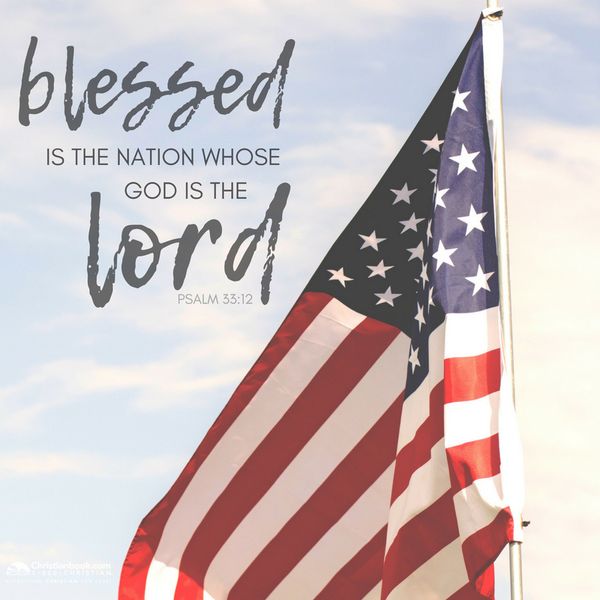|

The Fourth of July—also known as Independence Day or July 4th—has been a federal holiday in the United States since 1941, but the tradition of Independence Day celebrations goes back to the 18th century and the American Revolution. On July 2nd, 1776, the Continental Congress voted in favor of independence, and two days later delegates from the 13 colonies adopted the Declaration of Independence, a historic document drafted by Thomas Jefferson. From 1776 to the present day, July 4th has been celebrated as the birth of American independence, with festivities ranging from fireworks, parades and concerts to more casual family gatherings and barbecues.

- It is for freedom that Christ has set us free. Stand firm, then, and do not let yourselves be burdened again by a yoke of slavery (Galatians 5:1).
Jesus sets us free so that we can remain free.
In the book of Galatians, the apostle Paul was addressing a church that was struggling with a heavy yoke of religion. Paul encourages the Galatian church to remember why they received Christ in the first place–to be free from the “law of sin and death” (Romans 8:2).
- You, my brothers and sisters, were called to be free. But do not use your freedom to indulge the flesh ; rather, serve one another humbly in love (Galatians 5:13).
Paul goes on to explain that freedom is not an excuse to sin. Instead, it’s a responsibility that should be used to serve others.
- But now that you have been set free from sin and have become slaves of God, the benefit you reap leads to holiness, and the result is eternal life (Romans 6:22).
Paul again emphasizes the fact that freedom in Christ isn’t license to sin. In fact, the ultimate product of freedom is holiness and eternal life.
- Therefore, there is now no condemnation for those who are in Christ Jesus, because through Christ Jesus the law of the Spirit who gives life has set you free from the law of sin and death (Romans 8:1-2).
Paul preaches the pure gospel here–by dying on the cross, Jesus set us free from sin.
- The Spirit of the Sovereign LORD is on me, because the LORD has anointed me to proclaim good news to the poor. He has sent me to bind up the brokenhearted, to proclaim freedom for the captives and release from darkness for the prisoners (Isaiah 61:1).
The prophet Isaiah spoke a powerful message, fulfilled by Jesus several hundred years later. Jesus came to proclaim freedom for the captives–and His followers are called to do the same.
- Now the Lord is the Spirit, and where the Spirit of the Lord is, there is freedom (2 Corinthians 3:17).
The presence of the Holy Spirit brings the freedom to approach God with boldness and confidence (2 Corinthians 3:12-13).
- And you will know the truth, and the truth will set you free (John 8:32).
Jesus Himself said it–Ultimate freedom comes from knowing the truth about who we are, who God is, and what He has done for us.
- Out of my distress I called on the Lord; the Lord answered me and set me free (Psalm 118:5).
The Psalmist testifies to being liberated out of distress (some translations say “hard pressed”) by a loving, responsive God.
- For though I am free from all, I have made myself a servant to all, that I might win more of them (1 Corinthians 9:19).
Paul doesn’t sugarcoat it: He has used his freedom to answer a radical call to serve all, that he might win more for Jesus. Preach!
- I will walk about in freedom, for I have sought out your precepts (Psalm 119:45).
The Psalmist describes a sense of freedom that can only come from seeking to understand and obey God’s Word.
 
 
|